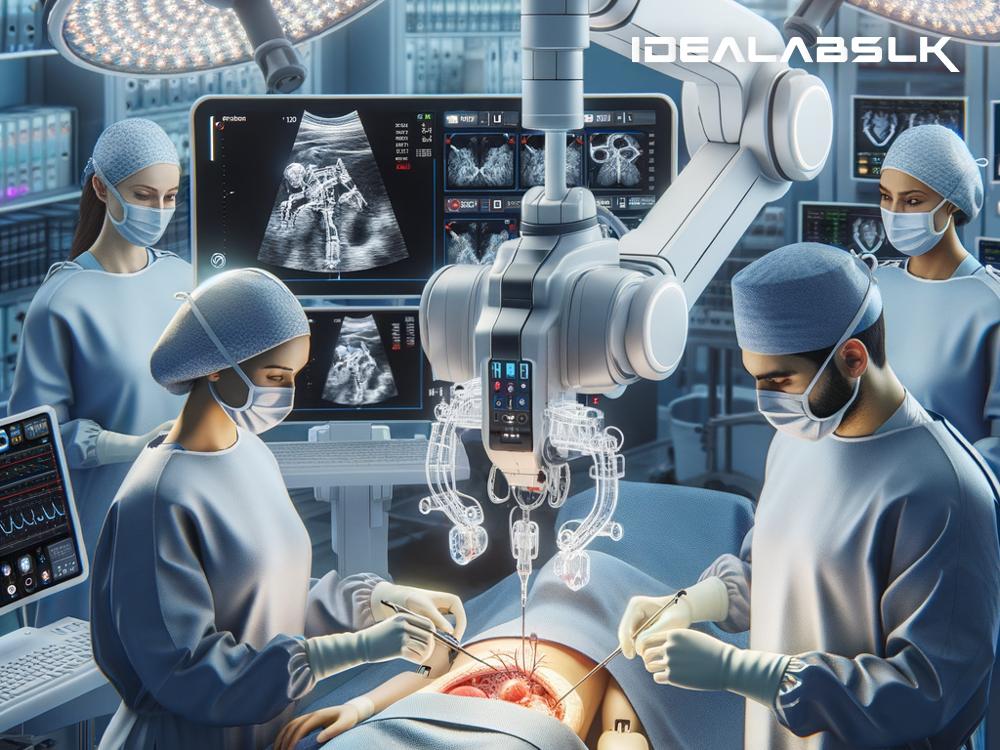The Future of Surgery: How AI is Revolutionizing Operating Rooms
Surgery, an essential pillar in the medical field, has always been about precision, steady hands, and split-second decisions. However, even the most skilled surgeons face limitations – human hands can be unsteady, eyes can miss minuscule details, and fatigue can set in during long procedures. But imagine if doctors had a partner that never got tired, could see things humans can't, and could perform movements with superhuman precision. That's not science fiction anymore; it's the reality of how Artificial Intelligence (AI) is transforming surgical robotics, revolutionizing the way surgeries are performed, and making the operating room safer and more efficient.
Enhancing Precision Like Never Before
One of the most groundbreaking advancements AI brings to surgical robotics is unparalleled precision. Traditional surgery, even when assisted by non-AI robots, relies heavily on the surgeon’s skill and experience. However, AI-enabled robots can perform complex movements with a level of accuracy that goes far beyond human capabilities. These robots can make incisions and movements with sub-millimeter precision, reducing the risk of accidental damage to surrounding tissues.
Imagine a robot assisting in a delicate brain surgery, making precise movements that avoid vital areas, directed by AI that has 'learned' from thousands of similar procedures. This is where we're heading – a future where surgical outcomes are more predictable and safer for patients.
Reducing Complications and Enhancing Recovery
The precision of AI-driven surgical robots directly translates to fewer surgical complications and quicker recovery times for patients. Since these robots can make smaller, more precise incisions, patients experience less blood loss, reduced risk of infection, and generally faster healing post-surgery. This not only benefits the patients but also significantly lowers healthcare costs by shortening hospital stays and lessening the need for corrective procedures.
Expanding the Possibilities of Surgery
There are areas in the human body that are incredibly challenging to reach and operate on due to their complexity and the risk involved. AI-powered surgical robots are expanding the possibilities, allowing surgeons to venture where only the most skilled and daring would have attempted in the past. These robots, equipped with AI, can navigate through the body in ways that were once deemed too risky, opening up new avenues for treating conditions that were previously considered inoperable.
Learning and Improving Continuously
One of the most exciting aspects of AI is its ability to learn and improve over time. AI systems analyze data from every surgery they assist in, learning from each procedure's outcomes, successes, and complications. This means that AI-driven surgical robots are continually becoming better assistants, refining their techniques, and reducing the possibilities of error. With each operation, the system becomes more adept, contributing to an ongoing evolution in surgical practices.
The Human Touch Remains Essential
Despite the incredible advancements AI brings to surgical robotics, the role of the human surgeon remains irreplaceable. These technologies are designed to work alongside surgeons, enhancing their abilities, not replacing them. Surgeons provide the judgment, empathy, and adaptability that AI and robots cannot replicate. The future of surgery lies in this powerful partnership between human expertise and technological precision.
Looking Ahead: The Future of Surgical Robotics
As AI technology continues to evolve, its integration into surgical robotics promises to further revolutionize what's possible in the operating room. The development of more sophisticated AI could lead to robots that can anticipate the surgeon's needs, respond to changes in the surgery in real-time, and even simulate entire procedures before making a single incision.
The advent of AI in surgical robotics is not just about making surgeries safer and more efficient; it's about making previously unthinkable procedures possible. It's about saving more lives and improving the quality of life for countless patients. As we stand on the brink of this new era in medicine, we can only imagine the full scope of benefits that AI-driven surgical robotics will bring to the world. This transformation underscores a profound truth: the future of surgery, and indeed healthcare, will be characterized by a seamless partnership between human intuition and artificial intelligence, opening a new chapter in the eternal quest to heal.

